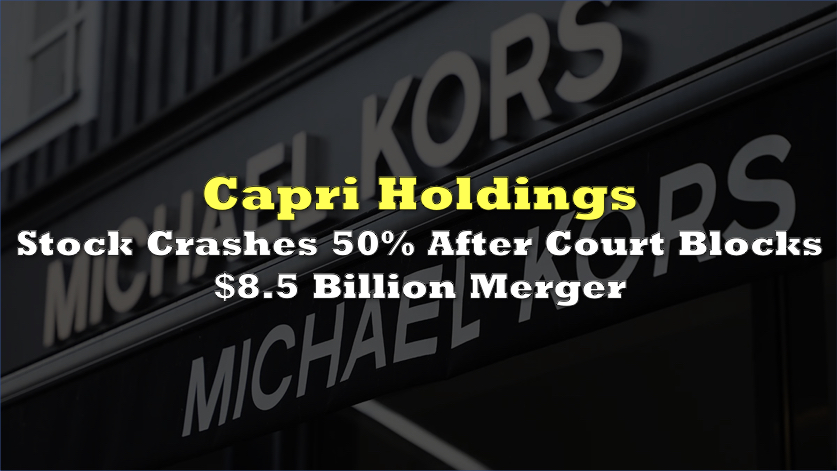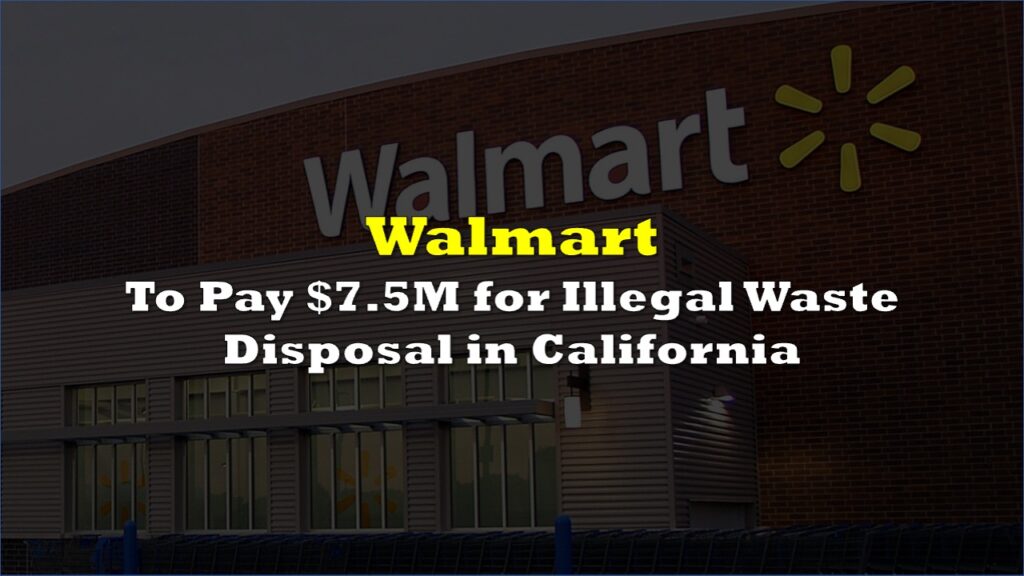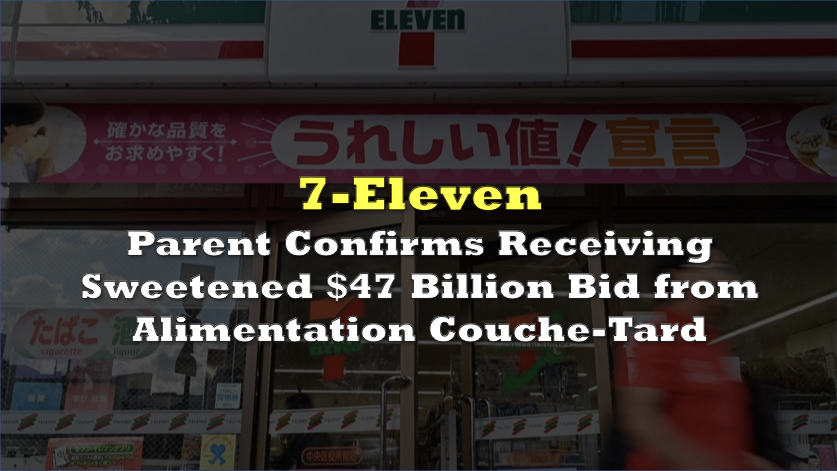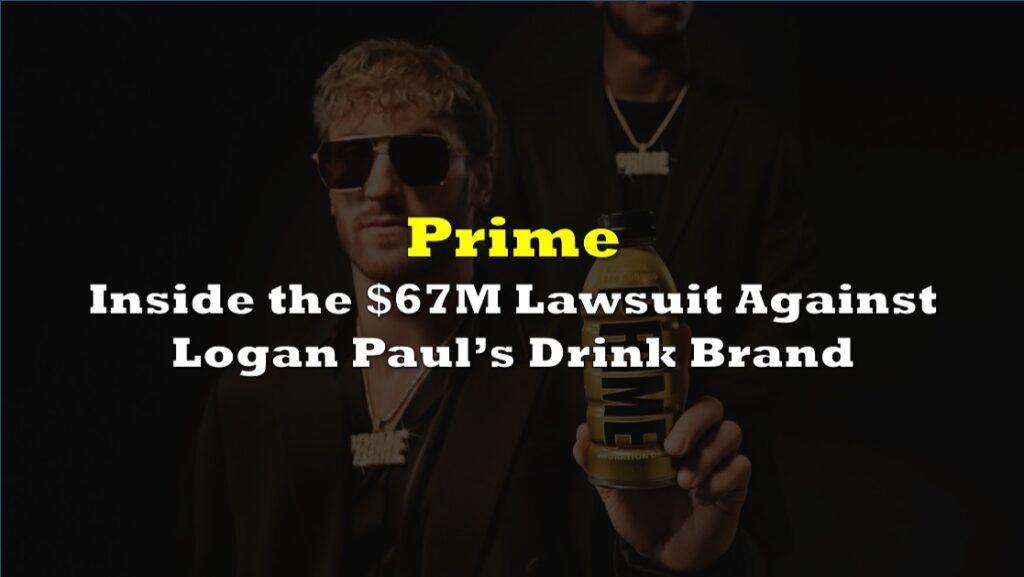A federal judge blocked the merger between Capri Holdings (NYSE: CPRI), the parent company of Michael Kors, and Tapestry, Inc., the owner of Coach and Kate Spade, citing concerns over antitrust violations in the accessible-luxury handbag market. The ruling came in response to a lawsuit filed by the Federal Trade Commission (FTC) earlier in the year, arguing that the $8.5 billion deal would substantially reduce competition in the sector.
Following the court’s decision, Capri Holdings experienced a dramatic 50% drop in its stock price, as reflected in after-hours trading. The sharp decline signals investor fears over the merger’s failure, compounded by ongoing regulatory challenges in the luxury retail space.

According to a post shared on X by user Compound248, the drop reflects broader frustrations with the United States’ current antitrust enforcement policies. The post noted that US regulators have also blocked major deals in other industries, such as the Spirit Airlines-JetBlue merger, underlining a more aggressive antitrust approach by the government in recent years.
After hours, $CPRI (Michael Kors) stock is down 50% !! after a judge blocked its acquisition by $TPR on antitrust grounds.
— Compound248 💰 (@compound248) October 25, 2024
The judge said the market for “accessible-luxury women’s handbags” would be too concentrated.
L O L
I sh!t you not.
US antitrust is a disaster.
1/x 🧵👇 pic.twitter.com/QtJza38DbM
A major point of contention in the case was how the market was defined. The FTC successfully argued that the merger would harm competition specifically in the “accessible luxury handbags” sector. This category includes products that target aspirational consumers seeking luxury items at lower price points than traditional high-end brands like Louis Vuitton or Gucci. Brands such as Michael Kors, Coach, and Kate Spade dominate this market.
The court agreed with the FTC’s argument that the merger would reduce consumer choice and lead to higher prices in this narrowly defined market. The judge also dismissed the defendants’ claim that competition from higher-end luxury brands or general fashion retailers could offset potential market concentration. The ruling leaned heavily on precedents that affirm the relevance of market definition in antitrust cases, such as the “narrowest market principle” highlighted in FTC v. Peabody Energy Corp. (2020), which states that the legality of a merger depends on its likely competitive effects within a specific market.
In her ruling, Judge Jennifer Rochon emphasized that “anticompetitive effects in one market cannot be justified by procompetitive consequences in another”, citing case law from Philadelphia National Bank . She underscored that while Tapestry may unlock value by combining brands like Coach and Michael Kors, the merger would harm competition in a significant portion of the accessible-luxury sector, which forms the core of the defendants’ business strategies.
This case is part of a larger trend of heightened antitrust scrutiny under the Biden administration, which has emboldened the FTC and the Department of Justice (DOJ) to take a more aggressive stance on corporate mergers. This stance is most prominently seen in cases like the Spirit-JetBlue merger, where the DOJ successfully blocked the deal to prevent consolidation in the ultra-low-cost airline market. In both cases, the FTC and DOJ focused on the potential harm to consumers through reduced competition and increased prices.
The Capri-Tapestry decision aligns with this broader policy shift, targeting not just monopolistic behavior but also acquisitions that could lead to increased market concentration in even niche markets. In fact, Judge Rochon’s decision mirrored the earlier Spirit Airlines v. JetBlue ruling, where the court found that even a merger involving companies with relatively small individual market shares could still significantly harm consumers if it impacted a critical segment of the market, such as low-cost travel or affordable luxury.
Capri Holdings and Tapestry, both giants in the accessible luxury sector, hoped that the merger would enable them to pool resources and better compete with larger European luxury conglomerates like LVMH and Kering. Michael Kors, Coach, and Kate Spade have carved out a unique position in the market, providing luxury-style handbags at more accessible price points for a growing middle-class consumer base. However, the court’s ruling prevents the companies from consolidating, forcing them to continue competing as independent entities.
Information for this story was found via the sources and companies mentioned. The author has no securities or affiliations related to the organizations discussed. Not a recommendation to buy or sell. Always do additional research and consult a professional before purchasing a security. The author holds no licenses.

















